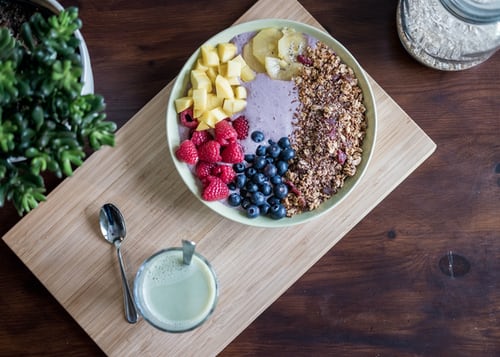An Introduction to Nutrition for Runners

If you're about to begin your running journey, there are some key things that you should do to set yourself up for success. Of all of the critical things you can do to increase your performance and make the most of your experience, there's one thing that tops the list that many people overlook. What is it? – Nutrition!
What you eat is always important, as food is what nourishes your body. It provides you with energy, fuels your cells, promotes muscle growth, and boosts endurance; you know, all of the things that are so important for a runner will dictate your success. But what type of foods should you be eating? Here are the vital components that you should add to your diet if you want to be as healthy and successful as possible with your running venture.
Protein
Protein is essential, as it helps your body rebuild muscles that become broken down while you're running and training. According to top nutritionists, runners should try to intake about 30 grams of protein in every meal and about 10 to 20 grams of protein in every snack. The best time to ingest protein is the first half-hour to an hour after a workout. You'll want a protien that contains all of the nine essential amino acids - a complete protein - that your body needs to regenerate muscle. Critical sources of complete protein include fish, meat, eggs, dairy, soy, and even quinoa. Other significant protein sources include nuts, grains, seeds, and legumes; however, keep in mind that they are not considered "complete" (meaning they do not include all of the essential amino acids). When consumed throughout the day, these foods will nourish your body with the building blocks needed to recover.
Healthy Fats
Did you know... it is a huge misconception that fats are unhealthy; some fatty acids are essential for your health, and those include omega-3 and omega-6 fatty acids. They are a vital component of a runner's diet, as they help to minimize inflammation, an issue that runners are particularly prone to. Some awesome, and natural, sources of omega-3 fatty acids include fish, like tuna, salmon, and trout, and sources of omega-6 fatty acids include nuts, such as pecans, almonds, walnuts, and peanuts, as well as soy. Other sources of healthy fats include olives, avocados, grass-fed butter, and even coconuts. It would be best if you tried to eat at least one healthy fat in every meal, as well as for your snacks.
High-quality carbohydrates
Healthy sources of carbohydrates fuel your body with the energy it needs to push through a hard workout, thus increasing your stamina. They can also aid in recovery. Vegetables and fruit are also excellent sources of antioxidants, which help to minimize inflammation. Colorful fruits and veggies pack the most high-quality carbohydrates, such as tomatoes, cucumbers, strawberries, peppers, and more. Try to eat fruits and vegetables as your daily snacks. Other quality carbs include whole grains, such as rice, quinoa, oats, millet, and farro. Keep in mind that you're going to want to avoid low-quality carbs, such as corn syrup, sugar, and processed grains.
- GrivetOutdoors.com _
Comments 0